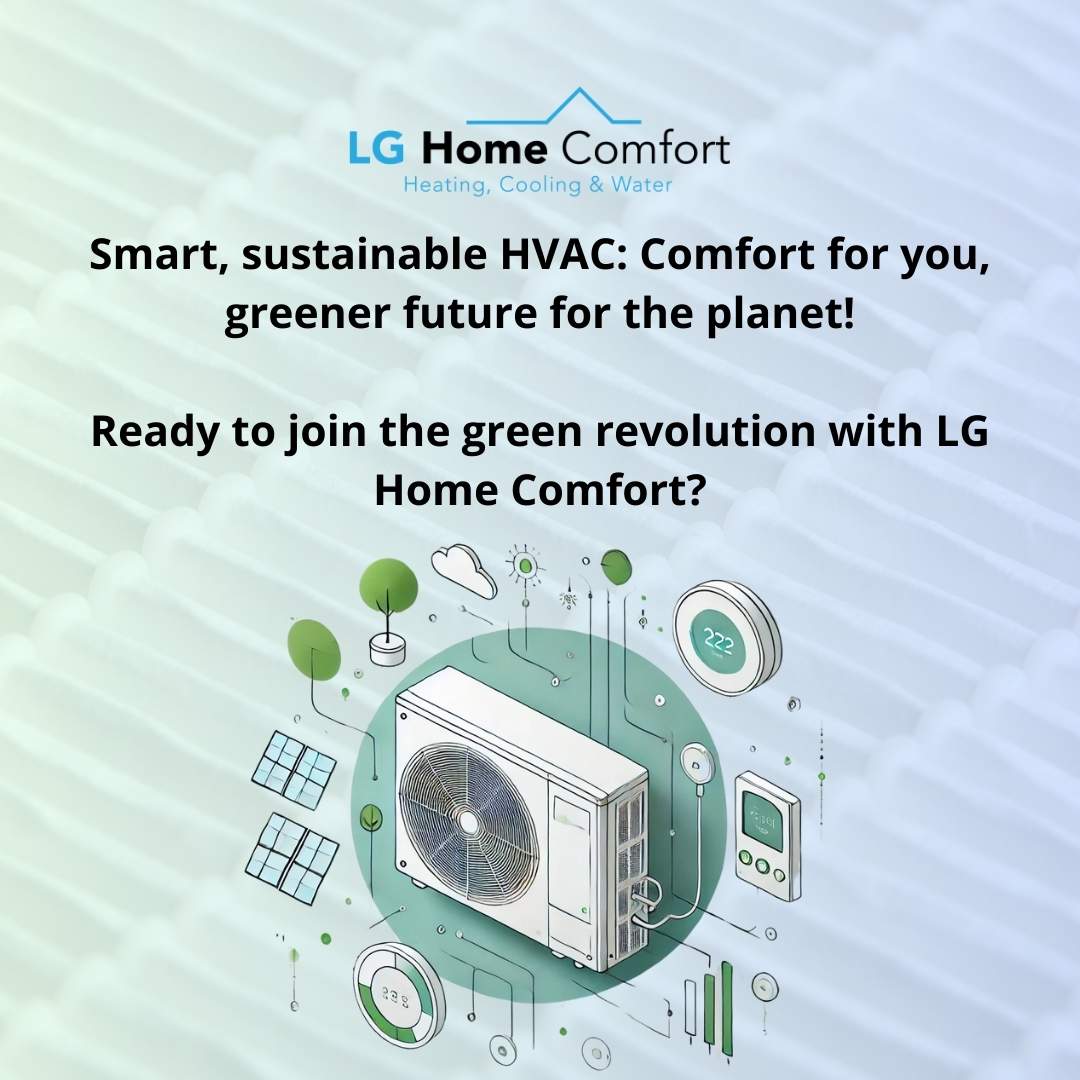The Future of HVAC: Sustainable and Green Technology

In a world increasingly focused on sustainability, the Heating, Ventilation, and Air Conditioning (HVAC) industry in Ontario is also experiencing a remarkable transformation. From smart technologies to eco-friendly practices, the future of HVAC is green, promising not only comfort but also a positive impact on our planet. Let’s dive into the advancements and innovations that are shaping the future of HVAC systems.
Understanding HVAC: More Than Just Comfort
HVAC, which stands for Heating, Ventilation, and Air Conditioning, is vital for maintaining indoor comfort and air quality. Imagine your cozy home on a chilly winter night or a cool retreat during a hot summer day—this is all thanks to HVAC systems. However, traditional systems often come with high operating costs and a hefty carbon footprint. Fortunately, change is in the air!
The Need for Sustainability in HVAC
Energy Efficiency: The New Norm
The drive for sustainability in HVAC systems is largely fueled by the need for energy efficiency. Modern HVAC solutions are designed to use less energy while providing the same, if not better, comfort levels. This shift not only translates into lower utility bills but also contributes to a substantial reduction in greenhouse gas emissions. It’s like getting a double scoop of your favourite ice cream—great for your wallet and the environment!
Cost Savings: A Smart Investment
While the initial investment in sustainable HVAC systems may be higher, the long-term cost savings are significant. Think of it as planting an apple tree in your backyard; with time and care, it will yield the fruits of your hard work. With rising energy costs, switching to energy-efficient systems becomes an economically savvy choice.
Environmental Impact: For a Healthier Planet
By reducing energy consumption, sustainable HVAC systems directly contribute to a cleaner environment. They emit fewer pollutants, helping combat climate change and ensuring a healthier world for generations to come. In other words, you’ll be doing your part to keep our planet green while enjoying optimal comfort.
Components of a Sustainable HVAC System
Smart HVAC Systems
The rise of smart technology is revolutionizing HVAC systems. Imagine a system that learns your habits and adjusts itself accordingly—welcome to the future! HVAC components like Ecobee smart thermostats are equipped with sensors and artificial intelligence, monitoring temperature, humidity, and your unique patterns. This ensures optimal performance while maximizing energy efficiency. You could say these systems are not just smart; they’re genius!
Read More: How Smart Thermostats Save Energy and Money!
Eco-Friendly Refrigerants
Traditional refrigerants release harmful gases that damage the ozone layer, but the shift to eco-friendly alternatives is here. These environmentally friendly refrigerants maintain HVAC performance without compromising the health of our planet. It’s like switching from a gas-guzzler to an electric car; the performance remains while the environmental impact decreases.
Renewable Energy Sources
As the world becomes more aware of global warming, integrating renewable energy sources into HVAC systems like geothermal-powered heat pumps and solar-powered ACs. By harnessing these renewable resources, HVAC systems can significantly reduce their reliance on fossil fuels. This transition is essential for minimizing harmful emissions and enhancing sustainability.
Innovations Shaping the Future of HVAC
Advanced Air Purification
Indoor air quality is paramount for health. Modern HVAC systems are increasingly incorporating advanced air purification technologies, using UV rays, humidifiers and HEPA filters to remove dust, bacteria, and allergens from the air. This means your home can be not only energy-efficient but also a sanctuary for fresh clean air.
Self-Cleaning Systems
Maintaining HVAC systems can be a hassle, but the introduction of self-cleaning technology is a game changer. These systems automatically clean their components, improving efficiency and indoor air quality while reducing maintenance costs. Imagine having a system that does the dirty work for you—now that’s convenience at its best!
Wireless Control and Connectivity
With the use of Wi-Fi, controlling your HVAC system has never been easier. Homeowners can now manage their heating and cooling systems from their smartphones, adjusting settings on the go. Whether you’re coming home from work or enjoying a sunny day at the park, having control at your fingertips is pure bliss.
Continuous Learning: The Key to Future Professionals
As the HVAC industry evolves, so must its professionals’ skills. Our HVAC technicians graduate from reputed trade schools that are adapting the curriculum to include courses on smart technologies, green practices, and continuous innovation. This ensures that we are equipped to meet the demands of an ever-changing industry.
Conclusion: A Bright Future for HVAC
The future of HVAC is undoubtedly bright, driven by technological advancements and a commitment to sustainability. From smart systems to renewable energy integration, the innovations coming down the pipeline promise to offer homeowners lower energy consumption, improved performance, and reduced costs. As we move forward, embracing these changes will not only benefit our homes but also our planet. At LG Home Comfort, we’re excited to be at the forefront of this green revolution in HVAC technology. Are you ready to join us in creating a sustainable future?
Terms and Conditions
- Once an initial service has been completed, the customer will be on a one-year commitment
- After the initial 12 months, the contract will be renewed on a month-to-month cadence
- If a service is completed for the next year, it automatically renews the commitment for an additional year
- Customers can cancel at any time after the 12-month initial commitment as long as the following year’s service has not been completed.
- Customers need to provide 30 days written notice in order to cancel their plan

